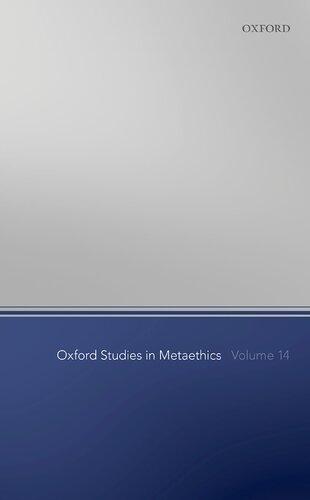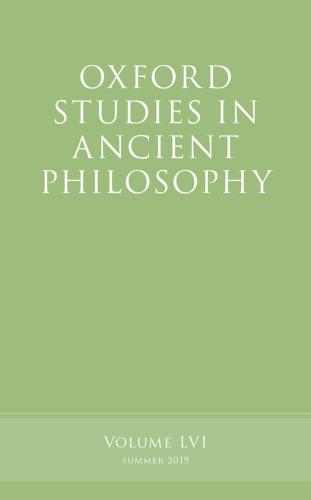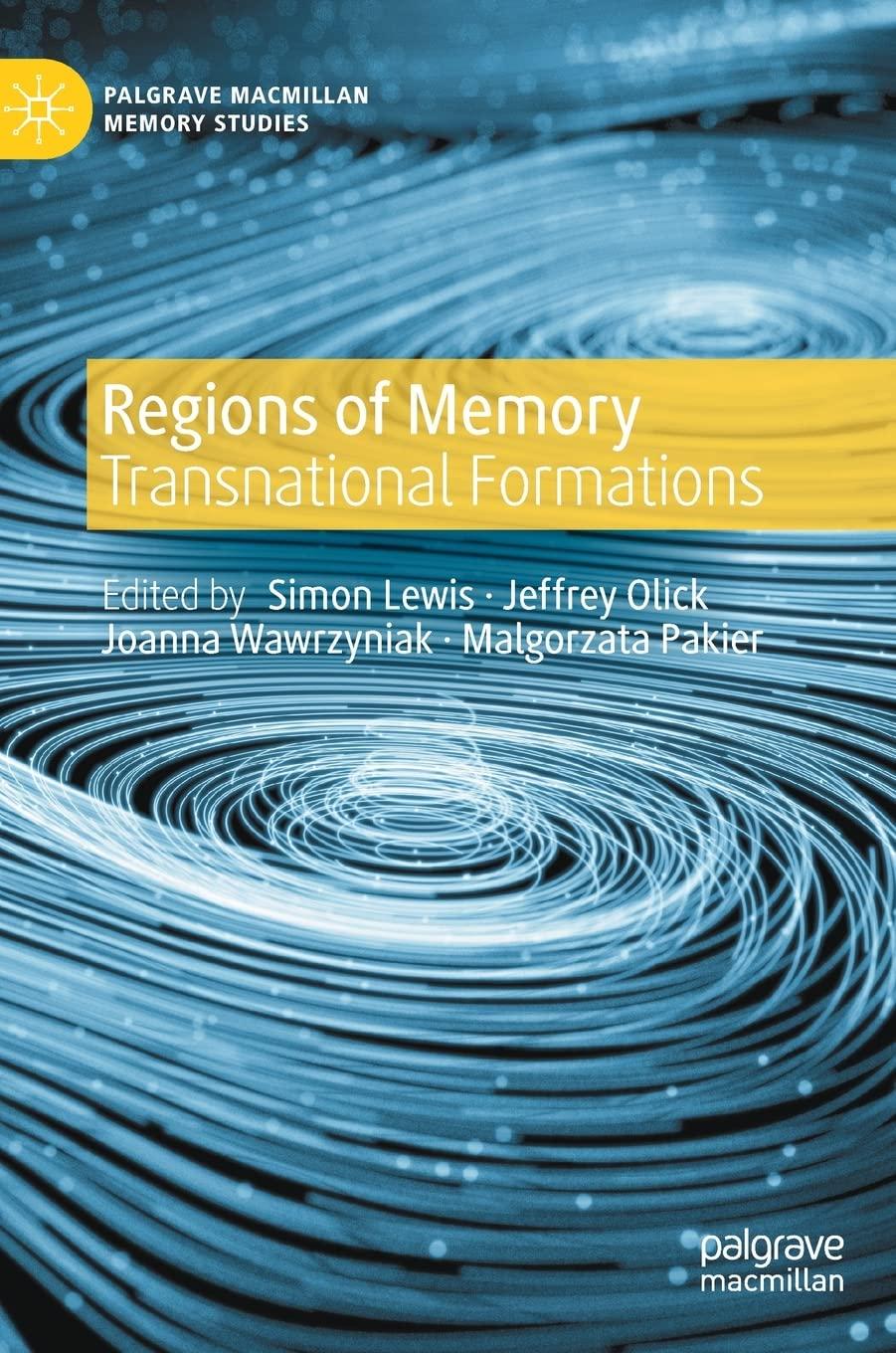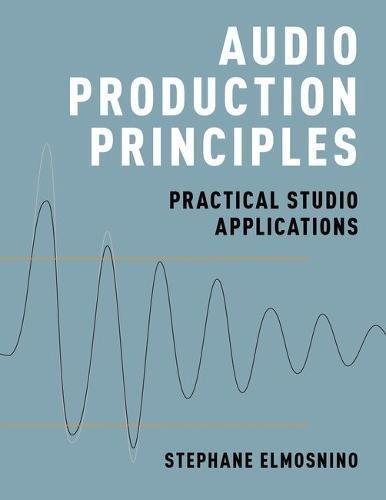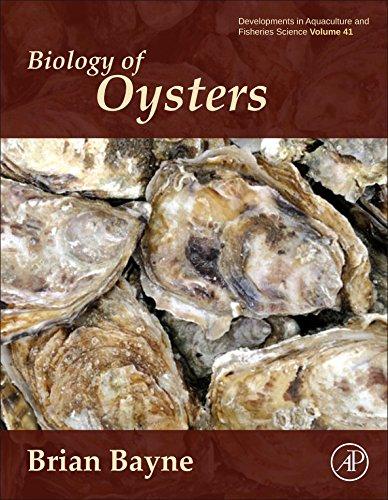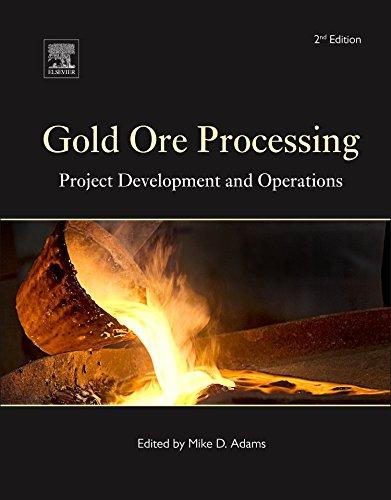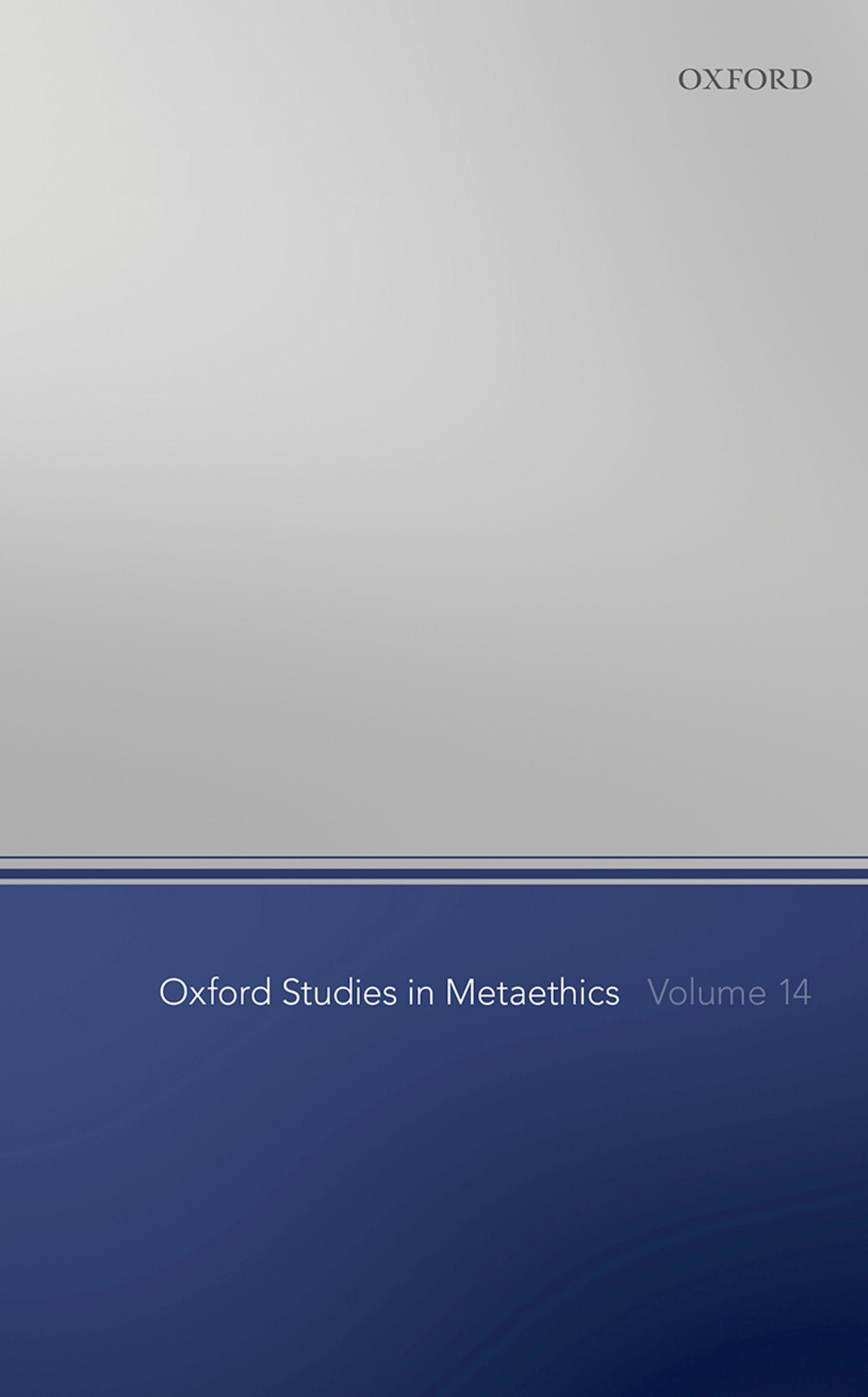https://ebookmass.com/product/oxford-studies-in-metaethicsvolume-14-russ-shafer-landau-editor/
Instant digital products (PDF, ePub, MOBI) ready for you
Download now and discover formats that fit your needs...
Oxford Studies in Metaethics 13 Russ Shafer-Landau
https://ebookmass.com/product/oxford-studies-in-metaethics-13-russshafer-landau/
ebookmass.com
Living Ethics: An Introduction with Readings Russ ShaferLandau
https://ebookmass.com/product/living-ethics-an-introduction-withreadings-russ-shafer-landau/
ebookmass.com
Oxford Studies in Ancient Philosophy, Volume LVI Caston
https://ebookmass.com/product/oxford-studies-in-ancient-philosophyvolume-lvi-caston/
ebookmass.com
The Regional Geography of Canada 7th Edition Robert M. Bone
https://ebookmass.com/product/the-regional-geography-of-canada-7thedition-robert-m-bone/
ebookmass.com
Integrated Lasers on Silicon 1st Edition Charles Cornet https://ebookmass.com/product/integrated-lasers-on-silicon-1stedition-charles-cornet/
ebookmass.com
Regions of Memory: Transnational Formations Simon Lewis
https://ebookmass.com/product/regions-of-memory-transnationalformations-simon-lewis/
ebookmass.com
Audio Production Principles: Practical Studio Applications 1st Edition Stephane
Elmosnino https://ebookmass.com/product/audio-production-principles-practicalstudio-applications-1st-edition-stephane-elmosnino/
ebookmass.com
Biology of Oysters, Volume 41 1st Edition Bayne
https://ebookmass.com/product/biology-of-oysters-volume-41-1stedition-bayne/
ebookmass.com
Automotive Service: Inspection, Maintenance, Repair Book 6th Edition Tim Gilles
https://ebookmass.com/product/automotive-service-inspectionmaintenance-repair-book-6th-edition-tim-gilles/
ebookmass.com
2nd Edition Mike D. Adams
https://ebookmass.com/product/gold-ore-processing-project-developmentand-operations-2nd-edition-mike-d-adams/
ebookmass.com
OXFORDSTUDIESINMETAETHICS OxfordStudiesin Metaethics Volume14 Editedby RUSSSHAFER-LANDAU
GreatClarendonStreet,Oxford,OX26DP, UnitedKingdom
OxfordUniversityPressisadepartmentoftheUniversityofOxford. ItfurtherstheUniversity’sobjectiveofexcellenceinresearch,scholarship, andeducationbypublishingworldwide.Oxfordisaregisteredtrademarkof OxfordUniversityPressintheUKandincertainothercountries
©theseveralcontributors2019
Themoralrightsoftheauthorshavebeenasserted
FirstEditionpublishedin2019
Impression:1
Allrightsreserved.Nopartofthispublicationmaybereproduced,storedin aretrievalsystem,ortransmitted,inanyformorbyanymeans,withoutthe priorpermissioninwritingofOxfordUniversityPress,orasexpresslypermitted bylaw,bylicenceorundertermsagreedwiththeappropriatereprographics rightsorganization.Enquiriesconcerningreproductionoutsidethescopeofthe aboveshouldbesenttotheRightsDepartment,OxfordUniversityPress,atthe addressabove
Youmustnotcirculatethisworkinanyotherform andyoumustimposethissameconditiononanyacquirer
PublishedintheUnitedStatesofAmericabyOxfordUniversityPress 198MadisonAvenue,NewYork,NY10016,UnitedStatesofAmerica
BritishLibraryCataloguinginPublicationData Dataavailable
LibraryofCongressControlNumber:2019930897
ISBN978–0–19–884144–9(hbk.)
978–0–19–884145–6(pbk.)
Printedandboundby
CPIGroup(UK)Ltd,Croydon,CR04YY
LinkstothirdpartywebsitesareprovidedbyOxfordingoodfaithand forinformationonly.Oxforddisclaimsanyresponsibilityforthematerials containedinanythirdpartywebsitereferencedinthiswork.
ListofContributors vii Introduction ix
1.HowPrinciplesGround1 DavidEnoch
2.TheSelf-UnderminingArgumentsfromDisagreement23 EricSampson
3.Contextualism,MoralDisagreement,andProposition Clouds47 JussiSuikkanen
4.Taking Prudence Seriously70 GuyFletcher
5.InternalismandPrudentialValue95 JenniferHawkins
6.DesiringundertheProperGuise121 MichaelMilonaandMarkSchroeder
7.InfinitismaboutCross-DomainConflict144 DavidKilloren
8.WeCanHaveOurBuckandPassIt,Too167 ZoëJohnsonKing
9.ReasonwithoutReasonsFor189 MichaelG.Titelbaum
10.TheFundamentalityofFit216 ChristopherHoward Index 237
ListofContributors DavidEnoch isRodneyBlackmanChairinthePhilosophyofLawandProfessorof Philosophy,HebrewUniversity.
GuyFletcher isSeniorLecturerinEthicsandPoliticalPhilosophy,Universityof Edinburgh.
JenniferHawkins isAssociateResearchProfessorofPhilosophy,DukeUniversity.
ChristopherHoward isResearchAssistantProfessorofPhilosophy,Universityof NorthCarolinaatChapelHill.
DavidKilloren isPost-DoctoralFellow,InstituteforReligionandCriticalInquiry, AustralianCatholicUniversity.
ZoëJohnsonKing isBersoffFacultyFellow,NewYorkUniversity.
MichaelMilona isAssistantProfessorofPhilosophy,RyersonUniversity.
EricSampson isgraduatestudent,UniversityofNorthCarolinaatChapelHill.
MarkSchroeder isProfessorofPhilosophy,UniversityofSouthernCalifornia.
JussiSuikkanen isSeniorLecturer,UniversityofBirmingham.
MichaelG.Titelbaum isProfessorofPhilosophy,UniversityofWisconsinMadison.
Introduction RussShafer-Landau Thisvolumetrulydisplaysthebreadthofworknowadaysbeingdonein metaethics,asitsentriesrangebroadlyacrosssomanyofphilosophy’ sareas ofspecialization.Webeginwithaworkinmetaphysics,byDavidEnoch, whoexaminesthenatureofthegroundingofparticularmoralfacts.An intuitivepicturehasitthatsuchfactsaregroundedintwothings:asetof naturalfacts,andamoralbridgeprinciplethatlinksthenaturalfactstothe moralone.Analternativeviewallegesthatthenaturalfactsaloneserveasthe groundofmoralfacts moralprinciplesareotiosewhenitcomestociting thatinvirtueofwhichmoralfactshold.Enocharguesthatwecanpreservea groundingroleformoralprinciplesoncewedistinguishtwokindsof grounding normativeandmetaphysical.Whilenaturalfactsalonecan serveasthemetaphysicalgroundsofparticularmoralfacts,moralprinciples areneededtoprovidethenormativegroundsofmoralfacts.Forthosewho mightbesuspiciousofmultiplyinggroundingrelationsbeyondnecessity, Enocharguesthatwehaveindependentreasontoendorsebothmetaphysicalandnormativegrounding.
Nextup:apairofarticlesaboutmoraldisagreement,aphenomenonthat canbeapproachedfrommanydifferentphilosophicalangles.EricSampson focusesonthemetaphysicsandepistemologyofmoraldisagreement,while JussiSuikkanenconcentratesonissuesfromlinguisticsandthephilosophy oflanguage.Sampsonsurveysmanyargumentsthatstartwithapremise aboutactualorpredictedfundamentalmoraldisagreementandthendraw anti-realistorskepticalconclusions.Hearguesthatallsuchextantargumentsareself-undermining,andthatallsuchfutureargumentsarelikelyto sufferthesamefate.Thecentralproblemforalloftheseargumentsisthat theycontainapremisethatiseitheritselfthesubjectofwidespreaddisagreementorsupportableonlybymeansofatleastoneclaimthatissubject tosuchdisagreement.Sampsoniscarefultonotethathehasnottriedto showthatallsuchargumentsareunsound,butratherthatnoonecanbe justifiedinbelievingtheirconclusions.
Suikkanen’sentryfocusesissuesthatarisewithintheframeworkof contextualistmoralsemantics.Suchviewsdenythatmoralpredicateshave fixedsemanticvalues rather,thepropertiesreferredtobymoralpredicates willvarywithcontext.Differentcontextualisttheoriesdisagreeaboutthe
Introduction
relevantcontextualfeaturesthatdeterminewhichnaturalpropertyis designatedbyamoralpredicate.Suikkanenfocusesonsubjectivistand relativistversionsoftheseviews,accordingtowhichitiseitherthespeaker’ s ownmoralcodeorhermoralcommunity’smoralcodethatconstitutesthe reference- fixingcontext.Astandardobjectiontotheseviewsisthattheyare unabletoaccountforhowweareabletodisagreeaboutmoralmatters. Anotheristhatthereisanarbitrarinessworryaboutselectingtherelevant context,especiallyforrelativistviews:whichculture’smoreswilldetermine thetruthofamoralutterancewhenthespeakerisamemberofmorethan oneculture?Suikkaneninvokesthenotionofapropositioncloud asetof propositions,allofwhichaspeakerputsintoplayinagivencontextbyher utterance asawaytodefendagainstbothobjections.Allthepropositions insuchcloudsareavailableforrejectionoracceptanceonthepartof listeners.Thenormsofconversationthenguideinterlocutorstomake informativecontributionstotheconversationinwaysthatenablethemto disagreeandtonon-arbitrarilydeterminewhichculturalelementswill fix thereferenceofthemoralpredicatesinuse.
Inthenextpairofarticles,GuyFletcherandJenniferHawkinsinviteus torefl ectonmetanormativeissuesregardingprudence.Thesearenot effortstospecifywhatitisthatmakesourlivesgowell,butrather,in Fletcher’scase,aninvestigationintothenatureofprudentialreasonsand prudentialdiscourse.Fletcher fi rstdefendstheclaimthatfactsaboutan agent ’swell-beinggenerate,andsoentail,reasonsforhereithertoperform certainactionsortohavecertainattitudes.Hethenoffersanargument fromanalogy(whoseanalogueismoraljudgment)fortheclaimthat prudentialdiscourseisgenuinelynormative.AccordingtoFletcher,the samefeaturesthatrevealthenormativityofmoraljudgmentsdosofor prudentialones.
Hawkinsconsidersthequestionofwhetherexistenceinternalismholds forprudentialvalue.Thisformofinternalismsaysthatsomethingcanbe goodforanagentonlyifitiscapableofmotivatingher.Hawkinsdraws ourattentiontoamodaldistinctionbetweenrealizedgood(whatisnow orhasbeengoodforanagent)andmerelypotentialgood(whatmay contributetohergoodatsomefuturedate).Hawkinsarguesthatexistence internalismistruewhenitcomestorealizedgood:somethingisnowgood foranagentonlyifitelicitssomekindofpositivepsychologicalresponse fromherduringthetimeatwhichitisgoodforher.However,shebelieves thatphilosophersshouldbeexistenceexternalistsaboutmerelypossible good.Eveniffactsaboutone ’sfuturegoodgroundreasonstoactinways tobringitabout,agentsmayfailtorecognizesuchfacts,andsomayfailto bedulymotivated.
MichaelMilonaandMarkSchroedernexttakeusintotherealmofmoral psychology.Theydirecttheireffortstovindicatingaspecificversionofthe guiseofthenormative thesis:theviewthatalldesiresareassociatedwith normativeappearancesorjudgments.Thisthesishastwomainversions. The firstsaysthattherelevantnormativerepresentationshavetodowith reasons;thesecond,withthegood.MilonaandSchroederdefendthe formerversionasagainstthelatter.Thecentralideaisthatwecanuse observationsfromthetheoryofcontentdeterminationinordertoconstrain possibletheoriesoftherepresentationalcontentsassociatedwithdesire. Theyarguethatguiseofthegoodviewsfailtomeetthoseconstraints, whileaguiseofreasonsviewcanreadilymeetthem.
DavidKilloren’sarticlefocusesondeepstructuralissueswithinethics. Hiscentralclaimisthatifwhathecalls theoverridingview istrue,then infinitismaboutcross-domainconflict istrue.Theoverridingviewistheview thattherearemultiplenormativedomains(e.g.,moralityandprudence), whoserequirementscanconflictwithoneanother,andthatinsome suchconflicts,anobligationbelongingtoonenormativedomainoverrides anobligationbelongingtoanother.Infinitismaboutcross-domainconflict combinestheoverridingviewwiththefollowinginfinitistclaim:for everycaseinwhichanobligationfromonedomain(callitDA)overrides anobligationfromanother,thereisaninfinitelylongchainofdomains D₁,D₂,D3, ...,suchthatD₁ containsanobligationtoactinlinewith theobligationsofDA,andD₂ containsanobligationtoactinlinewiththe obligationsofD₁,andD₃ containsanobligationtoactinlinewith theobligationsofD₂—andsoon,indefinitely.Thecoreideaisthat resolutionofcross-domainconflictrequiresahigher-orderdomainwhose edictspossesstheauthoritytoresolvesuchconflict.If,forinstance,amoral andaprudentialrequirementconflict,wecannotresolvetheconflictjustby lettingmoralityassertitspreeminence,sotospeak.Someother,higherorderdomain,ratherthanoneofthedomainsinvolvedinthedispute,must beintroducedtoresolvetheconflict.Buteachsuchhigher-orderdomain willbeoneamongmanyatthesamelevel.So,topossessthenormative powerneededtoeffecttheconflictresolution,itneedstobeinvestedwith thatauthoritybytheedictsofadomainatayet-higherlevel andsoon, andsoon, adinfinitum.Killorenrealizesthatthisviewisgoingtostrike mostreadersasunpalatable,muchasinfinitismintheepistemicdomainhas metwithwidespreaddoubt.Nordoeshehimself findtheresultverysavory. Butheseesnoplausiblewaytoavoidit.
ZoëJohnsonKing’sarticleisacontributiontodebatesaboutwhathas becomeknownas “buck-passing.” Partiestothesedebatesaretakingastand onwhethermoralrequirementsarethemselvesreasonsforaction.So-called
buck-passersinsistthatsuchrequirementscannotthemselvesbepractical reasons,foriftheywere,thentherewouldbetoomanyreasons.Buckpassersthinkthatthegroundsofmoralrequirementsarereasons,andthatif themoralrequirementsthemselveswereadditionalreasons,thenwe’dgeta perniciousformofnormativedouble-counting.JohnsonKingisnobuckpasser,andsheoffersacriticismofthisoft-repeatedredundancyargument. Sheemphasizesthatthisargumentovergeneralizes,yieldingimplausible verdictsinallcasesinwhichtwoormorereasonsarearrangedinrelationshipsofmetaphysicalconstitution.Forallsuchcases,sheproposesthatallof thesefactscanbegenuinereasons,whosenormativeweightissharedin virtueofthemetaphysicalrelationshipsbetweenthem.
MichaelG.Titelbaum’sentryisalsofocusedonstructuralrelations amongfactsthatcountasreasons.Henotesthatmetaethicistshaverecently devotedagreatdealofattentiontoquestionsaboutwhenafactcountsasa reasonfororagainstaparticularconclusion,andhowsuchreasonsinteract. Butheasksabroaderquestion:Whenasetoffactscountsinfavorofsome conclusion,isthatalwaysbecauseatleastoneofthosefactsisareasonfor thatconclusion?Titelbaumreturnsanegativeanswer.Heoffersabatteryof examplesinwhichasetofconsiderationssupportsaconclusionwithoutany factinthatset’sbeingareasonforthatconclusion.Hethenassessesthe signi ficanceofsuchexamplesforphilosophicalmethodology,metanormativerealism,andthe “ reasons-first ” program.
ClosingoutthevolumeisChrisHoward’saward-winningentryinthe 2017MarcSandersmetaethicscompetition.AsHowardnotes,many authorsfavora “ reasons-first ” ontologyofnormativity,whichtreatsreasons asnormativelyfundamental.Othersfavora “value-first ” ontology,which treatsvalueorgoodnessasnormativelyfundamental.Howardarguesthat botharemistaken,onthegroundsthatneithercanaccountforallofthe normativereasonsthereare.Hedevelopsanontologyofnormativity, originallysuggestedbyFranzBrentanoandA.C.Ewing,accordingto which fittingnessisnormativelyfundamental.Thenormativerelationof fittingnessistherelationinwhicharesponsestandstoanobjectwhenthe objectmerits orisworthyof thatresponse.Howardarguesthata “fittingness- first ” ontologyisnolessparsimoniousthaneitherofitsmain competitors,andthatit,unlikethem,canplausiblyaccommodatethe existenceofallthenormativereasonsthereare.
Earlydraftsofmostofthepapersinthisvolumeweredeliveredatthe 12thannualMadisonMetaethicsWorkshop.I’dliketothankJohnBrunero, TristramMcPherson,AndrewSepielli,DanielStar,SigrúnSvavarsdóttir, andAlexWorsnipfordoingsuperlativeworkastheProgramCommitteefor thatevent.I’dalsoliketothankJamieDreier,SarahMcGrath,andJussi Suikkanenforhavingservedasthereviewpanelforthe2017MarcSanders
Prize.Lastly,RichardRowlandandDerekBakerservedasOUP’sreviewers forthisvolume.It’sahugetask;theyoffereddozensofpagesoftrenchant, constructivecommentsthathaveledtoagreatmanyimprovementsinthe essaysyouhavebeforeyou.Frommyself,andonbehalfofthegrateful contributorstothiscollection:thankyou.Andthanks,asalways,toPeter Momtchiloff,editor parexcellence andreliablestewardofthisseries.
1 HowPrinciplesGround DavidEnoch
Itwouldbewrongofyounottogivethatgradstudentfeedbackonher paperinatimelymanner.Why?Well,becauseshelegitimatelyexpectsthis feedback,andnotgettingitontimewillharmherprogress.Butthisisnot all moreisneeded.Whatmakesitthecasethatitwouldbewrongofyou nottogivethatgradstudentherfeedbacksoonisallofthat, togetherwith the factthatyououghtnottoharmpeoplebyfrustratingtheirlegitimate expectations.Ioughttosendtheworkshoporganizermypaperbythe agreeddeadline.Ihavethismoralduty,itseems,notmerelyinvirtueof havingpromised,butalsoinvirtueofthefactthatweoughttokeepour promises.
Intheseandinmanyothercases,itisverynaturaltorefertomoral principles(indifferentlevelsofgenerality,perhaps)inofferinggrounding explanationsofspecificmoralfacts thatis,inanswering “invirtueofwhat” or “whatmakesitthecasethat” questionsaboutthem.AndasIproceedto argueinthe firstsection,forRobustRealistslikemyselfthismaybemore thanjustanaturalthingtosay theremaybetheoreticalreasonstothink thatRobust,non-naturalist,Realism needs moralprinciplestodoserious groundingwork.ButarecentchallengefromSelimBerkerthreatensto refutethisnaturalpictureofthegroundingroleofmoralprinciples.Moral principles,Berkerarguesplausibly,arethemselvesalreadyclaimsaboutwhat groundsspecificmoralfacts,andsotheyleavenoroomforthemselvesto do suchgroundingwork.IpresentthischallengeinmoredetailinSection1.2, andtherestofthispaperismyattemptatrespondingtoit.Itturnsoutthat indoingso,adetourthroughthoughtsaboutthegroundingroleof legal rulescomesinhandy.Idiscusshowthelawgroundslegalfactsin Section1.3,offeringthereananaloguetoBerker’schallenge,andcoping withit.Ithenpresentmyresponsetothechallengeinthemoraldomainin Section1.4.Thatsolutionreliesonthedistinctionbetweendifferentkinds ofgroundingrelations,orongrounding-pluralism.Berkeranticipatesthis lineofresponsetohischallenge,though,andinSection1.5Igetintoeven
deepermetaphysicalwatersinordertodefendthegroundingpluralismline againstBerker’sresponse.Sections1.6and1.7offerasomewhatbroader view:InSection1.6Itrytodistinguishbetweendomainsinwhichprinciplesdogroundingworkanddomainsaboutwhichwecansettlefor (roughly)Humean metaphysicallyidle principles.Thisdiscussionfurthersupportstheclaimthatmoralityisamongtheformer.Andin Section1.7Ishowthatwe allofus,prettymuchregardlessofother metanormativecommitments havereasontoacceptgroundingpluralism (andinparticular,anotionofmoralgroundingthatisdistinctfrom metaphysicalgrounding),byhighlighting(quickly)someoftheother workgroundingpluralismdoesinmetaethics.Ihopethatthisisofindependentinterest,butalso,itservestoshowthatthere ’snothingadhocin theapparatusIemploytorespondtoBerker’sChallenge.
1.1.THENATURALROBUSTREALISTPICTURE AccordingtoRobustMetaethicalRealism,thereareresponse-independent moralfactsandpropertiesandtruths.Furthermore,theyareimportantly differentfromnaturalfacts,properties,andtruths.Thismuchisclear even thoughit’snotasclearhowtocharacterizethenatural(andwithit, presumably,thenon-natural),orwhat “importantlydifferent” precisely comesto.Butbecausemuchhasbeensaidaboutsuchcomplications,¹ andbecausetheprecisedetailsofwaysofdealingwiththemwon’ tmatter forourpurposeshere,let’snotspendtimeonthem.Letmestipulatethat theRobustRealismI’minterestedinhereiscommittedtothefollowing: No moralfactisfullygroundedinnon-normative,naturalfacts.Inotherwords, wheneverin-virtue-of-whatquestionsaskedaboutmoralfacts(invirtueof whatisthatactionwrong?Invirtueofwhatisinequalitybad,ifitis?)have answers,²anyfullanswerwillhavetoinvokeanormative,non-naturalfact. Thisclaimismeanttocapturetheideathatmoralfactsareasreal,as ontologicallyrespectable,andthemostfundamentalofthemareasfundamental,asanyothers.Whenthegods finishedcreatingthenaturalfacts,asit
¹Including,alittle,byme.Seemy TakingMoralitySeriously (2011a:4)(hereafter TMS).
²Somein-virtue-of-whatquestionsofthiskindmaynothavesubstantiveanswers. Perhapsthefactthatpainis(protanto)badisungrounded:there’snothinginvirtueof whichitholds.Perhapsevensimilarclaimsabout tokens ofpain(thefactthat this agonyis bad)areungrounded.Ifso,thiswillhelpaccommodatetheintuition(towhichTristram McPhersondrewmyattention)thattheredoesn’tseemtobeanyneedforageneralization ingroundingthebadnessofaspecifictokenofagony.
HowPrinciplesGround issometimessaid,theystillweren ’tdone theystillhadtoputinplacethe moralonesaswell.³
Ofcourse,thisdoesnotruleoutmoralfactsbeing partly groundedin naturalfacts,whichisagoodthing,becauseobviously,theyare thefact thatitwouldbewrongofyounottogiveyourgradstudentcommentson herpaperisatleastpartlygroundedinnaturalfactsabouttheeffectsofsuch commentsonherwork.TheRobustRealistmerelyinsiststhatsuch stories groundingparticularmoralfactsinnaturalones willnevergive the full groundingstory.Thefullgroundsofparticularmoralfactswill includemorethanjusttherelevantnaturalfacts.⁴
Nordoesthisclaim thatnomoralfactisfullygroundedinnatural facts entailthatallmoralfactsareatleastpartlygroundedinother moralfacts.Somemoralfactsmaybeungrounded.⁵ Suchfundamental moralfacts principles,perhaps thenhaveaspecialrole:theyarenot themselvesgrounded(ineithernaturalornormativefacts),andtheyplaya partialgroundingrole perhapsattheendofratherlonggrounding chains ingroundingnon-fundamentalmoralfacts.
Soaccordingtosuchapicture,ifutilitarianismistrue,thenthefactthat yououghttomaximizeutility(orsomesuch)isanungroundedmoralfact; andallothermoralfactsarepartlygroundedinit(andpartlyinthenatural facts,factsaboutwhichlineofactionwillhavewhichconsequences,andthe like).AndifsomeRossianpluralismaboutprimafaciedutiesiscorrect,then themoralfactthatIoughttosendtheworkshoporganizermypaperbythe deadlineispartlygroundedintheprinciplerequiringthatwekeepour promises(togetherwithnaturalfactsaboutmyhavingpromised),andthat principleitselfisnotgroundedatall.
³Metaphorsaretricky.Thisone,forinstance,maysuggestthattherewasactuallysome timeinwhichcausinggratuitouspainwasnotwrong(untilthegodsgottoputtinginplace moralproperties).Butthisisafeatureofthemetaphor,notofmyview.
⁴ ShaferLandau(2003:76–7) aself-proclaimednon-naturalist seemswillingto acceptthatnormativefactsarefullygroundedinnaturalones.AsLeary(2017:91)argues, though,thisrendershimvulnerabletothechargethatattheendofthedayhe’ snotanonnaturalistafterall.
PerhapsShafer-Landaucaninsist(ashehas,inconversation;andIthankJussi Suikkanenforacloselyrelatedpoint)thatthephilosophicalmotivationsfornonnaturalismareconsistentwithseeingallnormativefactsasfullygroundedinnatural ones.Whetherthisissowilldependonthemotivationsfornon-naturalism.Inmycase, thiswilltakeustothejust-too-differentintuition,whichItietogrounding-talkbelow,in Section1.6.
⁵ Theymaybeungroundedeitherbecausetheyarefundamental thatis,theyareapt tobegrounded,butstandingattheendofagroundingchain,theyarenot orperhaps becausetheyareautonomousinDasgupta’s(2014)sense,thatis,theyarenotinthegame ofbeinggroundedatall.
This,then,isafairlynaturalpictureevenindependentlyofRobust Realism.ButtherearereasonstothinkthatforRobustRealismit’ smore thanjustnatural it’ s needed .First,thereseemstobeaverycloserelation betweenmoral(andmoregenerallynormative)factsandnaturalones. Actionsarewrongbecausetheyare,orinvirtueofbeing,harmful,or painful,orhumiliating,or... ⁶ Whatisthenatureofthisrelationbetween thenaturalandthemoralfacts?TheRobustRealistcannot onpainof desertinghernon-naturalism goforidentityhere.Groundingseemsto workbetter,butnot full grounding forifthemoralfactsarefully groundedinnaturalones,againnaturalism(deniedbyRobustRealism,as characterizedabove)willhavebeenendorsed.Sothenaturalwayofthinking oftherelationbetweenthenaturalandthemoralfactsisasarelationof partialgrounding.Whichraisesthequestion whatelseisneededforfully groundingmoralfactsexceptforthemorallyrelevantnaturalones?And thentheredon’tseemtobeplausiblealternativestofundamentalmoral principles.⁷
Second,andrelatedly,oneofthemainchallengesfacingRobustRealism istoexplainthesupervenienceofthemoral(orthenormative)onthe natural.Suchsupervenience consisting,accordingtoRobustRealism,in necessaryconnectionsbetweendistinctentities callsforexplanation,andif RobustRealismcan’texplainit(andif,asseemsplausible,atleastsome alternativemetaethicalviewshaveamucheasiertimeexplainingit),then thisisverybadnewsforRobustRealism.WhenIsuggestedawayout an explanationofsupervenience Ireliedonmoralprinciplesdoingwork.⁸ Thedetailsdon’tmatterrightnow,andneitherdothereasonsI’mnolonger confidentwhatIsaytheresucceeds.Therelevantpointisthatifanything likemystorythereisevenjustapartoftherightstorytotellhere,principles mustbedoinggroundingworkroughlyalongthelinesofthenaturalpicture above.⁹
Forthesereasons,then,evenifrejectingthenaturalpictureisconsistent withRobustRealism,stillifthenaturalpicturecannotbedefendedthis wouldbe especially badnewsforRobustRealism.¹⁰
⁶ SeeherealsoVäyrynen’s(2013:155)related “dependenceintuition.”
⁷ Forthislineofthought,seeRosen(2017a).Thenaturalpictureinthetextistheone thatRosen(2017b)calls “bridge-lawnon-naturalism.”
⁸ TMS (136–50).
⁹ Leary(2017:83andon)isespeciallyclearonputtingmystoryonsuperveniencein termsofthegroundingroleofprinciples.
¹⁰ Moralparticularists someofwhomwanttodefendafairlyrobustrealism,but withoutaccordinganyseriousroletomoralprinciples areanotherstory.Perhapsthey willhavetoinvokeaplethoraofungroundedspecificmoralfacts.Or goingoutona limbhere perhapstheywillwanttosaythatspecificmoralfactsareonlypartlygrounded
1.2.BERKER ’ SCHALLENGE Theutilitarianprinciple,itseemsveryplausibletoassume,doesnotmerely stateanextensionalequivalence itisnotmerelytheclaim(somewhat roughly)thatanactioniswrongifandonlyifthere’sanavailablealternative thatgenerateshigherutility.¹¹Attheveryleast,utilitariansthinkthatsuch equivalenceisnomerecoincidence,soweneedtoadda “necessarily” before theequivalence.Buteventhisisnotenough.UtilitarianismisnotindifferentregardingtheEuthyphroniccontrastbetweentheclaimthatanactionis wrongbecauseitfailstomaximizeutility,andtheclaimthatitfailsto maximizeutilitybecauseitiswrong.Soutilitarianismisbestunderstoodasa groundingclaim,stating,roughly,thatanactioniswrongifandonlyif, and because,itfailstomaximizeutility.Utilitarianismsays,inotherwords,that utility-suboptimalitygroundswrongness.¹²Furthermore,thisseemstobea statementofwrongness’ full ground.Theutilitariandoesn’tthinkthat alongsideutility-suboptimalitysomethingelseisneeded inthesame kindofway togroundwrongness.Rather,shethinksthatutilitysuboptimalityisthefullstoryunderlyingwrongness.Wecanunderstand, then,utilitarianismasthethoughtthatutility-suboptimalityfullygrounds wrongness.Butifonethingfullygroundsanother,thennootherthingis neededinordertogroundit.Inparticular,ifwheneveranactioniswrong, utility-suboptimalityfullygroundsitswrongness,thentheprincipleof utilityplaysnorole attheveryleast,nonon-redundantrole ingroundingitswrongness.Sothebestunderstandingoftheprincipleofutilityhasit sayingofitself,asitwere,thatitdoesnotplaya(non-redundant)rolein groundingthewrongnessofwrongactions.¹³Andthismeansthatthe (intherelevantnaturalfacts),butareneverfullygroundedbyanything perhaps,thatis, theycaninsistthatthenaturalfactscanbe,inFine’s(2012)terms,themoralfacts “strict partialgrounds.” Otherthanthisfootnote,Iwillnotbediscussingparticularisminthis paper.Forsomediscussionthattiesmoralparticularismtothegroundingliterature in particular,torejectinggroundingnecessitarianism seeWygoda-Cohen(2018).
¹¹WhatIcall “Berker’sChallenge” istakenfromhis “TheExplanatoryAmbitionsof MoralPrinciples” (Berkerforthcoming).
¹²Whatifautilitarianinsiststhatshe’sonlyendorsingthemodalextensionalequivalence?Thenitseemsshehastodigdeeper.Forwhyisit,wecanaskher,that,asamatter ofnecessity,allandonlyutility-suboptimalactionsarewrong?Itseemslikesheneedsan answer,andingivingitshewillbegivingwhatreallyisherultimatemoraltheory.Then wecanrunthelineinthetexton that theory.
¹³Theremaybeotherpossiblewaysofinterpretingtheutilitarianprinciple(someof themarediscussedbyBerker),butIdon’ t findthemplausible.
naturalpicturefromtheprevioussectionisfalse.Similarly,ofcourse,for othermoralprinciples.¹⁴
IfBerkerisright,then,thenaturalpictureisfalse.Thebestunderstandingofmoralprinciplesdoesnotallowthem onpainofinconsistencywith theirverycontent toplayaroleingroundingparticularmoralfacts.Moral principles,onthispicture,areroughlyHumean metaphysicallyidlegeneralizationsthatdonotthemselvesdoanywork(oranyway,not this work).¹⁵ Andbecauseofthenaturalnessofthenaturalpicture,thisisa resultyoumaybeworriedaboutevenifyou’renotaRobustRealist.¹⁶
1.3.HOWLAWGROUNDS Earliertoday,whenonmywayfromTelAvivtoJerusalemIdroveataspeed of120kph,Iactedillegally.ThefactthatIactedillegally(or theillegality ofmyaction)¹⁷ ispartlygroundedinthenon-legalbutlegallyrelevantfacts (myspeed,forinstance),butthisisnotitsfullground.Togettothefull groundwealsoneedtorefertotherelevantlegalnorm.ThefactthatIacted illegallyholdsinvirtueofthefactthatIwasgoing120togetherwiththe legalfactthatthespeedlimitthereis110kph.This,youwillrecall,is preciselythelegalanalogueofthenaturalpictureabove,andgoinglegal doesn’ttakeanythingfromitsinitialplausibility.
Howshouldweunderstand,though,therelevantlegalnorm?Whatisits content?Surely,itdoesn’tmerelysaythatallcasesofdrivingover110(in therelevantarea)amounttoviolation.Thelegalnorm(perhapstogether withthebestunderstandingofitsrole)isnotindifferentbetweenthe thoughtthattheactionisillegalinvirtueofbeingacaseofdrivingover110,
¹
⁴ BerkerusestheexamplesofutilitarianismandofaRossianprimafaciedutyagainst promisebreaking.
¹⁵ Ofcourse,thisisnotapointaboutHume.AllImeanbyHumeaniswhatfollowsin thetext.
Berkerconsiderssomeotheroptions includingthepartial-groundingoption,andthe possibilitythatmoralprinciplesareself-referential,mentioningthemselvesamongthefull ground.Idon’ t findanyofthesewaysoutplausible.
¹⁶ Clearly,then,Berkerdoesn’tbeganyquestionagainsttheRobustRealist.Berker doesn’tassumethatprinciplesdon’tplayagroundingrole(soassuming would amountto beggingthequestionagainsttheRobustRealist).Rather,hestartswiththeory-neutral observationsaboutthecontentofmoralprinciples,andtriestoinferfromthemthat principlesdon’tplayagroundingrole.(And,asInotebelow,hethinksthateventhatis consistentwithRobustRealism.)Ithankananonymousreaderforsomerelated comments.
¹⁷ Itakeittherelataofthegroundingrelationarefacts,butforeaseofexpositionI’ll allowmyselftospeakasifpropertiescanalsoservethisrole.
andgoingintheoppositeEuthyphronicdirection.Themostplausible readingofthelegalnormisasagroundingclaim.Thisseemsplausible withregardtothespeedlimitexample:Itsays,roughly,thatintherelevant cases,drivingover110fullygroundsillegality.¹⁸ Butifyou’renotconvinced, otherexamplesmayworkbetter:Think,forinstance,ofalegalrulestating theconditionsneededforthevalidityofawill(asignature,adate,witnesses, etc.),andassumetherulesaysthatthesetogetheraresufficientforthevalidity ofawill.Sucharuleseemstosayofitselfthatitisnotapartofthegroundof thevalidityofwills.Berker’sreasoningapplies,andthereforesodoeshis conclusion legalnormsareHumeangeneralizations,theydonoserious metaphysicalworkingroundingparticularlegalfacts,likethatIacted illegallywhenIdrove120onthewaytoJerusalem.The(legalversionof) thenaturalpictureisfalse.
Butthiscan’tberight. Ofcourse thelegalnormsplayagroundingrole here.Ifsomeonewantstounderstandwhatitisthatmakesitthecasethat Iactedillegally,andyoudon’tmentionthelegalnorm,you’renotgiving themthefullstorythey’reafter.Thinkofthefactthathadwebeenin anotherjurisdiction,orhadsomeonechangedthelawinarelevantway,my actionwouldnothavebeenillegal.
We’renowinaposition,then,todrawthefollowinginterimconclusion: Berker’sreasoningappliesinthelegalcasejustasitdoesinthemoralcase; inthelegalcase,though,theanalogueofBerker’sconclusionisclearlyfalse; sounlessBerkercanpointtoarelevantdisanalogybetweenthemoraland thelegalcase,we’velearnedthatsomethinghasgonewronginBerker’ s reasoning.Theremainingtaskistoseewhat first,intherestofthis section,vis-à-visthelaw,andthen,inSection1.4,regardingmorality.
Consider,then,thetensionbetweenthefollowingtwopropositions:
L N G:Thefullgroundofaparticularlegalfact (likethatIactedillegallywhendriving120onthewaytoJerusalem) includesreferencetothelegalnorm(likethefactthatthespeedlimit thereis110).
N G W:Thefullgroundoftheillegalityofmy actionismyspeed(andperhapsother,legallyrelevantbutnon-legal facts).
N G W seemstofollowfromthecontentofthelegalnorm itself.L N G seemslikeanuncompromisingaspectofour commonsensicaltheoryoflegalfacts.Butthetwoseeminconsistent.Can theybereconciled?
¹⁸ Thelegalcasemaybemuchmorecomplicated,butinwaysthatneedn’tworryushere.
Theycan,ifweareallowedtodistinguishbetweendifferentkindsof grounding,anddisambiguateaccordingly.Let’sdistinguishthenbetween metaphysicalgroundingandlegalgrounding.Whenaskingaboutlegal grounding,oneisaskingaboutanin-virtue-ofclaimthatisinternal,asit were,tothelegalstoryorthelegaldomain(moreonthisshortly).Now,N G W,restrictedto legal grounding,soundsveryplausible indeed:
N L G
W
:Thefulllegalgroundoftheillegality ofmyactionismyspeed(andperhapsother,legallyrelevantbutnonlegalfacts).
Anditis very plausiblethatN L
G
W
doesfollowform thecontentoflegalnorms(perhapstogetherwithaplausibleunderstanding oftheirrole).Forlegalnormsareplausiblyunderstoodasfull legal groundingclaims theystatethefullin-virtue-ofstoryinternaltothelaw.But becauserestrictedtolegalgrounding,thisisconsistentwithallowingthe legalnormtoplayametaphysicalgroundingrole: L
N
M
:Thefullmetaphysical groundingofaparticularlegalfactincludesreferencetothelegalnorm. BecauseL
W
arenotevenintensionwitheachother,ifwecan helpourselvestothedistinctionbetweenthesetwokindsofgrounding,we canrespectboththefactthatthelegalnormsarethemselvesstatementsof full(legal)grounding,andthefactthatlegalnormsarenotHumean generalizations.
Noticehownicelythiscaptureswhatweintuitivelywanttosayhere.The legalnormispartofwhatcreatesorunderliestherelevantlegalfacts,soof courseit’srelevanttotheparticularlegalfacts.Butwithintheframework createdbythespecificlegalnormsallthat’sneededformydrivingtobe illegalisforittobeat120kph.Thefullmetaphysicalexplanationofwhat makesitthecasethatI’mactingillegallyhastorefertothelegalnorm.But theinternallylegalstorydoesnot.¹⁹ Withinthatstory,thespeedsuffices. Can wehelpourselvestothesedifferentkindsofgroundingrelation? What’stostopus,really?I’vemadenofurtherassumptionsaboutthem, exceptthattheyaredistinct Ihaven’t,forinstance,saidanythingabout
¹⁹ Thingsarealittlemorecomplicatedthanthis,aswemayneedtorefertospecific legalnormsevenwithinthelegalstory.Ifso,weshouldbeabletotellamorecomplicated storythatincludesalsothehierarchyoflegalnormswithinalegalsystem,andsomething resemblingaKelsenian Grundnorm thatisnotitselfapartofthelegalpicture.Butnothing ofimportanceheredependsonthiscomplication.
HowPrinciplesGround thembeingindependentofeachotheroranysuchmetaphysicallycommitted thing(thoughIreturntothisbelow).²⁰ Thetwonotions metaphysicaland legalgrounding seemtomakesense,andtocapturegenuinelydifferent thingswearegenuinelyinterestedin(perhapsindifferentcontexts).Think ofgames,forexample:Federerwonthepoint.Why?Becausehisforehand caughttheline.Orshouldweadd andbecauseintennis,on-the-line countsas “in”?Well,whetherweneedthisasapartoftheanswerdepends onwhatthequestionpreciselyis.Ifthequestionisforthefullmetaphysical story,thenyes.Ifthequestionarisesinacontextinwhichweareallowedto assume,²¹asitwere,thetennis-framework,andwhatissoughtisatennisinternalin-virtue-of,thenthestoryiscompletewithoutreferringtothe relevanttennisnorm.
Wecandistinguish,then ratherunproblematically betweendifferent groundingclaims,intheminimalsenseofthedistinctionthat’s(sofar) needed.Unlesspositingthemcanbeshowntoleadtoincoherenceor otherwiseunacceptableresults,then,weareentitledtousethem.Andthis meansthatwehaveacleanwayoutoftheanalogueofBerker’schallenge thatappliestothelegalcase.
Beforegettingbacktothemoralcase,Iwanttomentionacloselyrelated, butstilldifferent,possiblegroundingpicture.OnthestoryI’vebeentelling, thelegalnorm(ortherulesoftennis)playedaroleindirectlygroundingthe relevantparticularlegal(ortennis)fact.Butthere’sanalternativewayof fleshingouttheintuitionthatthelegalnormsetsthestageortheframework forthelegalstoryandplaysnoroleinit.Accordingtothisalternative picture,theonly(relevant)thingthatgroundstheillegalityofmyactionis myspeed.Thelegalnormneverstandsinthegroundingrelation metaphysicalorotherwise withtheillegalityofmyaction.Itdoesgroundingwork,alright,butnot that groundingwork.Rather,whatitgroundsis thefactthatdriving120groundsillegality.Similarly,perhapstherulesof tennisdonotground,inanyway,thefactthatFedererwonthepoint;it’ s justthattheserulesgroundthefactthattheballcatchingthelinegrounds
²⁰ Rosen(2017b:286): “noonewillbetemptedtopositsuigenerisrelationsoflegal grounding,musicalgrounding,orthographicgrounding,andsoon.” Myself,I’mokay withmultiplyinggroundingrelations;I’mnotsureaboutthesuigenerispart.
Ineedtoconcedeapointhere(followingahelpfulobjectionfromNevinClimenhaga): EvenIwillhavelimitsastohowliberaltobeinmultiplyinggroundingkinds.Idon’ twant ittobethecase,say,that thatgrassisgreen isthegrassy-groundoftheconjunctivefact that grassisgreenandsnowiswhite,andthat thatsnowiswhite isitssnowy-ground.Andwhat IhavetoconcedeisthatIdon’thaveagoodanswerforthequestionhowliberalistoo liberal.Still,intuitiveideasabout domains orsomesuchcanhelp.There’ snograssy domaininasenseanalogoustothatinwhichthereisamoraloralegaldomain.
²¹ButIdon’tthinkthemattercanbeaccommodatedpurelypragmatically.Ireturnto thislaterinthetext.
thefactthatitwasawinner.Onthispicture,then,wegetiterated groundingclaims:
LegalNormG(SpeedGIllegality)[Compare:(LegalNorm&²²Speed) GIllegality]
TennisRulesG(OnTheLineGWinner)[Compare:(TennisRules& OnTheLine)GWinner]
Noticethatthetwoaccountssharetheabilitytoaccommodateboththe thoughtthattherelevant “external” factdoessomeseriousgroundingwork, andthefactthat “internally” itdoesnot.Whichisthebetteraccountmay varyfromcasetocase inthelegalcase,forinstance,itseemsimplausible thatthelegalnormdoesnotstandinthe(partial,metaphysical)grounding relationdirectlywiththeparticularlegalfact.Perhapsit’sevenpossiblefor oneandthesamethingtoplaybothroles.Fornow,though,letusjustbear thisotheroptioninmind.We’llrevisititregardingthecasewe’ remost interestedinhere,namely,thatofmorality.
1.4.BACKTOMORALITY Berker’schallengecannowbeseenashighlightingtheneedtoreconcilethe seeminglyirreconcilable:
M P
G
:Thefullgroundofaparticularmoral factincludesreferencetoamoralprinciple.
N G W:Thefullgroundof(e.g.)thewrongnessof wrongactionsaretheir(morallyrelevant)naturalcharacteristics.
Andthewayoutistodistinguishbetweenmoralandmetaphysicalgrounding,anddisambiguateaccordingly:
M P M G:Thefullmetaphysicalgroundofaparticularmoralfactincludesreferencetoamoral principle.
N M G W:Thefullmoralgroundofthe wrongnessofwrongactionsaretheirrelevantnatural(butmorally relevant)characteristics.
Notice,again,hownicelythiscaptureswhatwewanttosay.Withinthe moralstory,asitwere,thefactthatbyfailingtogiveyourgradstudentcommentsinatimelyfashionyouwillbeharmingherprogressand
²²Or,ifwe’regoingtobepickyaboutthesethings,feelfreetoreplacetheconjunction withthesetoftheconjuncts.
HowPrinciplesGround frustratingherlegitimateexpectationssuf ficesforwrongness.Andwhatthe promise-keepingprinciplesaysisthatthefactthatIpromisedtheworkshop organizerthepaperbytheendofAugustsufficesformymoraldutytosend himthepaperbythatdate.Butofcourse,thatdoesnotmeanthatthe frameworkissomehowgrounding-irrelevant.It’srelevant,becauseit’ sapart ofthefullerstory,themoreexternalstory,ofthegroundingofthesemoral duties.²³
Onthissuggestion,then,Berkerisrightthatthecontentofmoral principlesincludesagroundingclaim.He’sevenrightthatitoftenincludes a full groundingclaim.Onthissuggestion,utilitarianismisunderstood (roughly)astheclaimthatutility-suboptimalitymorallyfullygrounds wrongness.²⁴ It’sjustthatthecontentofthemoralprinciple,beinga moral principle,issilentonmetaphysicalgrounding.Andwhywouldyou expectamoralprincipletosaysomethingabout that?
Weshouldnowrevisittheiteratedgroundingpicture,accordingto which nowappliedtothemoralcase themoralprinciplesdonotthemselvesstandinanygroundingrelationtoparticularmoralfacts.Rather,they groundthefactthattherelevantnaturalfactsgroundtheparticularmoral fact.Semi-formally,again:
MoralPrincipleG(NaturalFactGParticularMoralFact)
[Compare:(MoralPrinciple&NaturalFact)GParticularMoralFact]
Andinparticular:
OughtKeepPromisesG(PromisedGOught)
[Compare:(OughtKeepPromises&Promised)GOught]
Andheretoo,thisstoryalsonicelyseemstocapturewhatwewant,suchas thedistinctionbetweenwhatgoesonwithinthemoralstory(oncethe frameworkisinplace,asitwere),andwhatisapartoftheexternalstorythat includestheinternaloneasapartofit.²⁵ How,then,arewetodecide betweenthetwo?²⁶ Andhowbadisitifwecannot?
²³Fine(2012:77)notesthattheplausiblethoughtisthatthenormativeis normatively, not metaphysically groundedinthenatural.
²⁴ SeeRosen(2017a:155)wherehislastattemptatcapturingtheformofmoral principlesisaformalversionofmypointinthetexthere.
²⁵ AtleastonewayofreadingShafer-Landauisasoptingforthiskindofastory.See Leary’s(2017:90)discussionof “LawfullyGroundedNon-Naturalism.” Berkertoo considersthisoption,andrejectsitforreasonscloselyrelatedtothosediscussedin Section1.5.
²⁶ Perhapstheiteratedgroundingviewcountsasnaturalistaccordingtothestipulated characterizationabove(foraccordingtotheiteratedgroundingviewonlynaturalfacts standindirectgroundingrelationswithmoralfacts),butbecauseofthegroundingrole moralprinciplesplayevenonthatview,itseemsto fitonlytheletterofthe

